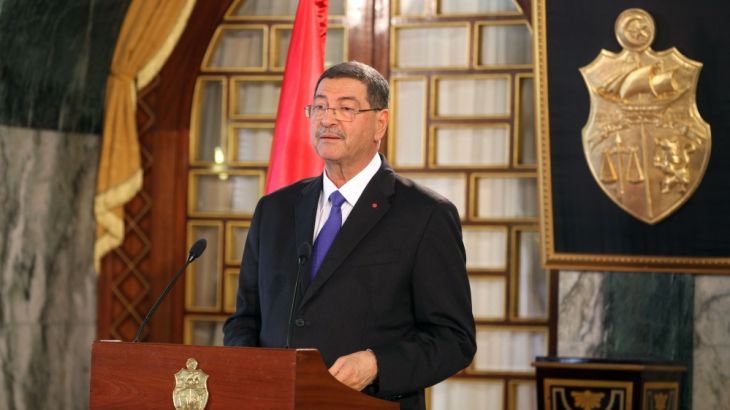Tunisia parliament approves unity government
Secular-Islamist coalition government of prime minister-elect Habib Essid receives overwhelming support from lawmakers.

Tunisia’s parliament has approved a unity government led by the secular Nidaa Tounes party and including its Islamist rivals, in the latest step in its transition to full democracy following a 2011 uprising.
The cabinet headed by Prime Minister Habib Essid, which includes members of his secularist Nidaa Tounes party and Ennahda, was approved on Thursday by 166 members of the 217-seat parliament.
Thirty members opposed while eight abstained, as Essid, whose cabinet includes ministers from four parties, promised “work and nothing but work” on the country’s economic and security problems.
Parliament speaker Mohamed Ennaceur welcomed what he called “a comfortable majority” in the vote of confidence.
Essid’s earlier attempt to form a government consisting of just his Nidaa Tounes party and one other party was scrapped after it became clear it would lose the vote of confidence.
It is the first government to be formed after the North African country’s first free presidential and parliamentary elections last year.
Example of democracy
Nidaa Tounes, the winner of parliamentary elections last October, holds six portfolios, including the foreign ministry, while the interior, defence and justice portfolios go to independents.
Ennahda takes the labour ministry and three secretary of state posts.
Al Jazeera’s Nazannine Moshiri, reporting from Tunis, said: “The main two parties in the country are now in government, and also the two other smaller parties which are quiet popular here, that has weakened the opposition and a lot of people are saying this is almosty like a one party state.
“At the same time most Tunisians want this new government, whoever it includes, to get on with the job of solving problems of its country which include the economy, the joblessness and social problems which led to the revolution in the first place and the new additional problems of the last four years which deals with security”.
Moshiri also said that Tunisians see this as an example of democracy, the fact that parliament actually has agreed on this coalition government going forward.
Tunisians overthrew their dictator in 2011 and the ensuing four years of transition have been stormy.